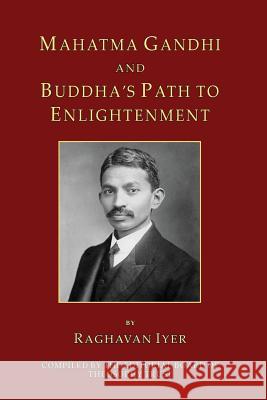Mahatma Gandhi and Buddha's Path to Enlightenment » książka
Mahatma Gandhi and Buddha's Path to Enlightenment
ISBN-13: 9780991618224 / Angielski / Miękka / 2014 / 336 str.
Gandhi, like Gautama, did not try to escape the evident truth of human suffering through seeking mindless oblivion or neurotic distractions, nor did he choose to come to terms with it through compensatory spiritual ambition or conventional religious piety. Rejecting the route of cloistered monasticism, he pondered deeply and agonizingly upon the human condition, and sought to find the redemptive function and therapeutic meaning of human misery. Translating his painful insights into daily acts of tapas - self-chosen spiritual exercises and the repeated re-enactments of lifelong meditation in the midst of fervent social activity - he came to see the need for a continual rediscovery of the purpose of living by all those who reject the hypnosis of bourgeois society, with its sanctimonious hypocrisy and notorious 'double standards' for individual and public life. Spiritual striving towards enlightenment can help to raise a ladder of contemplation along which the seeker may ascend and descend, participating in the worlds of eternity and time, perfecting one's sense of timing in the sphere of action. In most people, alas, the seed is not allowed to sprout or grow owing to chaotic and contradictory aims and desires, tinged by vain longings and delusive expectations, fantasies and fears, blocking any vibrant encounter with the realities of this world as well as any possibility of envisioning Jacob's ladder, "pitched betwixt Heaven and Charing Cross." Gandhi's own spiritual conviction grew, with the ripening of age, that social reformers and non-violent revolutionaries must repeatedly cleanse their sight and remove all self-serving illusions by placing themselves squarely within the concrete context of mass suffering.











